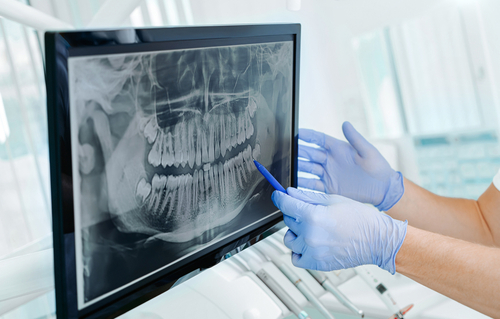Some words have an uncanny ability to evoke visceral reactions. For example, the term “bone grafting” might make even the bravest among us hesitate. The phrase combines two clinical-sounding words that can immediately bring to mind complicated procedures or potential discomfort. It’s completely normal to feel a bit apprehensive when faced with unfamiliar medical language. These reactions often create a mental hurdle, leading to hesitation or uncertainty about the purpose or necessity of the treatment. This hesitation is especially impactful in dental care, where trust and comfort are paramount. Hearing that bone grafting is necessary for tooth replacement might feel like hitting a wall for some patients. Fortunately, advancements like mini dental implants are changing the landscape of tooth replacement. For many, these options bypass the need for grafting entirely, making the path to a restored smile more approachable and far less intimidating.
Rebuilding Your Smile’s Foundation: The Power of Bone Grafting
Bone grafting is a procedure that helps rebuild the jaw’s natural support system, like the foundation of a house. It’s strong and sturdy when intact but vulnerable to wear and tear over time. Tooth loss, gum disease, or trauma can cause the jawbone to shrink, diminishing its strength. The purpose of a bone graft is reinforcement. A dentist or oral surgeon carefully adds bone material to areas of the jaw that need a boost. Think of it like patching a cracked wall so it can carry weight again.
The bone used for the graft can come from a few sources: your own body (called an autograft), a donor (allograft), or even synthetic materials crafted to mimic natural bone. These materials are placed where more bone is needed, secured in place, and allowed to heal.
Following placement is an integration process that can take several months, but it is vital in preventing further bone loss and restoring the jaw’s structural integrity. Over the following months, the implant material integrates with the existing bone, creating a stronger, healthier foundation.
Tooth Replacement Without Bone Grafting
Bone loss is an expected consequence of tooth loss, a process deeply tied to how your jawbone receives stimulation. When you bite or chew, the natural tooth root transmits these forces to the surrounding bone, signaling your body to maintain that tissue. Without a tooth present, this stimulation halts, and the bone in that area begins to diminish over time, complicating future dental implant placement. Traditional dental implants, around 5 millimeters in diameter, often require bone grafting if the jawbone has receded significantly to ensure a stable and durable foundation.
Yet despite this, dental implants remain one of the most advantageous tooth replacement options. They uniquely mimic the function of natural tooth roots, promoting better oral health and restoring your ability to bite and chew naturally. So, what if you could avoid the more extensive preparation required by traditional implants and still enjoy these benefits? In many cases, mini dental implants offer precisely that opportunity. These implants are significantly smaller—less than 3 millimeters in diameter—and can often be placed without bone grafting.
Their reduced size means that they require less bone to achieve secure placement. Dr. Coolican uses a minimally invasive technique to place these implants, minimizing discomfort and speeding up recovery. This option not only preserves your jawbone but also opens the door to implant-supported restorations for patients who might not otherwise qualify for traditional implants.
The Benefits of Mini Dental Implants
It’s natural to wonder how mini dental implants—roughly half the size of traditional implants—can hold their own. Despite their reduced size, mini dental implants match the strength of their traditional counterparts. How? They’re crafted from titanium—a metal renowned for its biocompatibility and resilience. This unique property allows titanium to coexist with your natural tissues seamlessly, ensuring a smooth integration process. Through osseointegration, the titanium bonds directly with the surrounding jawbone. This process forms a strong and durable anchor capable of withstanding the daily forces of chewing and biting.
Mini dental implants also shine when it comes to efficiency. The entire process—from implant placement to restoring your smile—often takes fewer appointments than traditional implants. You can enjoy a functional and beautiful smile sooner without needing months of healing or additional procedures like bone grafting. But beyond their strength and convenience, mini implants are also a budget-friendly option. Their streamlined placement process, fewer appointments, and reduced need for supplementary treatments make them a more cost-effective solution for patients. And because they’re so durable, they offer excellent value over the long term.
Explore Your Options With Mini Dental Implants
Imagine reclaiming the confidence to smile freely, savor your favorite foods, and speak without hesitation—all without the roadblocks that might have once made you pause. Mini dental implants make this vision a reality, offering a transformative solution that’s efficient, durable, and cost-effective. Contact us today to schedule your free consultation!
Want to learn more about the benefits of mini dental implants? Follow us on Facebook for updates and insights!

